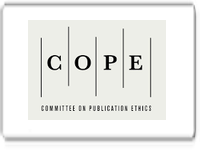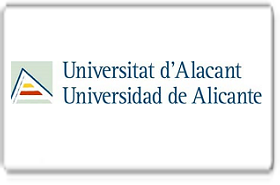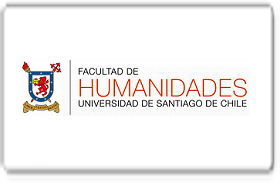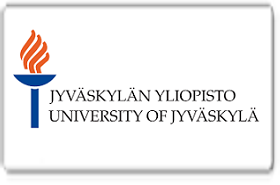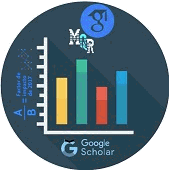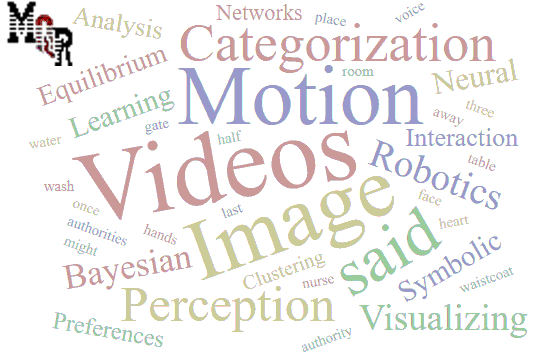Exploración del Uso de Tecnologías de IA en la Educación Universitaria: Caso UNEMI
DOI:
https://doi.org/10.56048/MQR20225.8.4.2024.2382-2397Resumen
El presente trabajo se ha investigado el uso y la percepción de la inteligencia artificial en la educación universitaria, en este caso la Universidad Estatal de Milagro en Ecuador. Se estudio cómo la IA se puede utilizar para mejorar la calidad educativa y apoyar la enseñanza a los estudiantes de ingeniería de software. La investigación se llevó a cabo haciendo unas encuestas a 118 estudiantes de UNEMI con la finalidad de conocer los principales usos y percepciones de la IA. Con las encuestas se quería medir de qué manera los estudiantes utilizan este tipo de tecnología en el ámbito académico y personal. Los resultados han sido que los datos de la IA, es utilizada principalmente para la investigación, el aprendizaje y el entretenimiento. Por otro lado, los estudiantes perciben que la IA les permite adquirir conocimiento y les ayuda a desarrollar habilidades prácticas, a través de ella también pueden entender mejores conceptos complejos. Consideramos que la IA puede integrarse de manera adecuada en la educación universitaria, puede ser beneficiosa para alumnos y para el sistema educativo en general, de este modo la IA podría ayudar a mejorar la educación en Ecuador para que sea más incluyente y competente.
Descargas
Métricas
Cited
DOI: 10.56048![]()
Citas
Ahmad, T. (2020). Scenario based approach to re-imagining future of higher education which prepares students for the future of work. Higher Education, Skills and Work-Based Learning, 10(1), 217-238. Scopus. https://doi.org/10.1108/HESWBL-12-2018-0136
Al Shamsi, J. H., Al-Emran, M., & Shaalan, K. (2022). Understanding key drivers affecting students’ use of artificial intelligence-based voice assistants. Education and Information Technologies. Scopus. https://doi.org/10.1007/s10639-022-10947-3
Al-Zoubi, S. I., & Ali, M. (2019). E-mobile acceptance using unified theory of acceptance and use of technology (UTAUT): Research on universities in Jordan. Annals of Emerging Technologies in Computing, 3(4), 28-36. Scopus. https://doi.org/10.33166/AETiC.2019.04.003
Basaif, A. A., Alashwal, A. M., Mohd-Rahim, F. A., Karim, S. B. A., & Loo, S.-C. (2020). Technology awareness of artificial intelligence (Ai) application for risk analysis in construction projects. Malaysian Construction Research Journal, 9(1 Special issue), 182-195. Scopus.
Bernabei, M., Colabianchi, S., Falegnami, A., & Costantino, F. (2023). Students’ use of large language models in engineering education: A case study on technology acceptance, perceptions, efficacy, and detection chances. Computers and Education: Artificial Intelligence, 5. Scopus. https://doi.org/10.1016/j.caeai.2023.100172
Cachero, C., Rico-Juan, J. R., & Macià, H. (2023). Influence of personality and modality on peer assessment evaluation perceptions using Machine Learning techniques. Expert Systems with Applications, 213. Scopus. https://doi.org/10.1016/j.eswa.2022.119150
Chen, S.-Y., Su, Y.-S., Ku, Y.-Y., Lai, C.-F., & Hsiao, K.-L. (2022). Exploring the factors of students’ intention to participate in AI software development. LIBRARY HI TECH. https://doi.org/10.1108/LHT-12-2021-0480
Conde-Zhingre, L. E., Cueva-Alvarado, G. I., Chamba-Eras, L. A., & Ureña-Torres, M. I. (2022). Impact of Artificial Intelligence in Basic General Education in Ecuador. 2022 17th Iberian Conference on Information Systems and Technologies (CISTI), 1-7. https://doi.org/10.23919/CISTI54924.2022.9820018
García-Vélez, R. A., López-Nores, M., González-Fernández, G., Robles-Bykbaev, V. E., Wallace, M., Pazos-Arias, J. J., & Gil-Solla, A. (2019). On Data Protection Regulations, Big Data and Sledgehammers in Higher Education. Applied Sciences, 9(15), Article 15. https://doi.org/10.3390/app9153084
Gren, L. (2020). A Flipped Classroom Approach to Teaching Empirical Software Engineering. IEEE Transactions on Education, 63(3), 155-163. Scopus. https://doi.org/10.1109/TE.2019.2960264
Hair, J., Black, W., Babin, B., & Anderson, R. (2019). Multivariate data analysis (8th ed.). Pearson
Jia, L., Santhosh Kumar, B., & Parthasarathy, R. (2022). Research and Application of Artificial Intelligence Based Integrated Teaching-Learning Modular Approach in Colleges and Universities. Journal of Interconnection Networks, 22. Scopus. https://doi.org/10.1142/S0219265921430064
Kim, J., Merrill, K., Xu, K., & Sellnow, D. D. (2020). My Teacher Is a Machine: Understanding Students’ Perceptions of AI Teaching Assistants in Online Education. International Journal of Human-Computer Interaction, 36(20), 1902-1911. Scopus. https://doi.org/10.1080/10447318.2020.1801227
Klimova, B., Pikhart, M., Polakova, P., Cerna, M., Yayilgan, S. Y., & Shaikh, S. (2023). A Systematic Review on the Use of Emerging Technologies in Teaching English as an Applied Language at the University Level. Systems, 11(1). Scopus. https://doi.org/10.3390/systems11010042
Lai, C. Y., Cheung, K. Y., & Chan, C. S. (2023). Exploring the role of intrinsic motivation in ChatGPT adoption to support active learning: An extension of the technology acceptance model. Computers and Education: Artificial Intelligence, 5. Scopus. https://doi.org/10.1016/j.caeai.2023.100178
Makris, N., & Mitrou, N. (2023). Multisubject Analysis and Classification of Books and Book Collections, Based on a Subject Term Vocabulary and the Latent Dirichlet Allocation. IEEE Access, 11, 120881-120898. Scopus. https://doi.org/10.1109/ACCESS.2023.3326722
Marutschke, D. M., & Hayashi, Y. (2022). AI-SUPPORTED EVALUATION OF KANO MODEL FEATURES FOR ONLINE COURSES. ICIC Express Letters, 16(5), 505-512. Scopus. https://doi.org/10.24507/icicel.16.05.505
Pillai, R., Sivathanu, B., Metri, B., & Kaushik, N. (2024). Students’ adoption of AI-based teacher-bots (T-bots) for learning in higher education. Information Technology and People, 37(1), 328-355. Scopus. https://doi.org/10.1108/ITP-02-2021-0152
Rožman, M., Tominc, P., & Vrečko, I. (2023). Building skills for the future of work: Students’ perspectives on emerging jobs in the Data and AI Cluster through artificial intelligence in education. Environment and Social Psychology, 8(2). Scopus. https://doi.org/10.54517/esp.v8i2.1670
Sallam, M., Salim, N. A., Barakat, M., Al-Mahzoum, K., Al-Tammemi, A. B., Malaeb, D., Hallit, R., & Hallit, S. (2023). Assessing Health Students’ Attitudes and Usage of ChatGPT in Jordan: Validation Study. JMIR Medical Education, 9(1). Scopus. https://doi.org/10.2196/48254
Wang, S., Wang, H., Jiang, Y., Li, P., & Yang, W. (2023). Understanding students’ participation of intelligent teaching: An empirical study considering artificial intelligence usefulness, interactive reward, satisfaction, university support and enjoyment. Interactive Learning Environments, 31(9), 5633-5649. Scopus. https://doi.org/10.1080/10494820.2021.2012813
Wang, Y., Liu, C., & Tu, Y.-F. (2021). Factors Affecting the Adoption of AI Based Applications in Higher Education: An Analysis of Teachers Perspectives Using Structural Equation Modeling. Educational Technology and Society, 24(3), 116-129. Scopus.
Zhang, C., Schießl, J., Plößl, L., Hofmann, F., & Gläser-Zikuda, M. (2023). Acceptance of artificial intelligence among pre-service teachers: A multigroup analysis. International Journal of Educational Technology in Higher Education, 20(1). Scopus. https://doi.org/10.1186/s41239-023-00420-7
World Health Organization. (2020). Physical activity and young people: Recommendations and benefits. https://www.who.int/news-room/fact-sheets/detail/physical-activity
Publicado
Cómo citar
Número
Sección
Categorías
Licencia

Esta obra está bajo una licencia internacional Creative Commons Atribución 4.0.
Los autores se comprometen a respetar la información académica de otros autores, y a ceder los derechos de autor a la Revista MQRInvestigar, para que el artículo pueda ser editado, publicado y distribuido. El contenido de los artículos científicos y de las publicaciones que aparecen en la revista es responsabilidad exclusiva de sus autores. La distribución de los artículos publicados se realiza bajo una licencia 


















